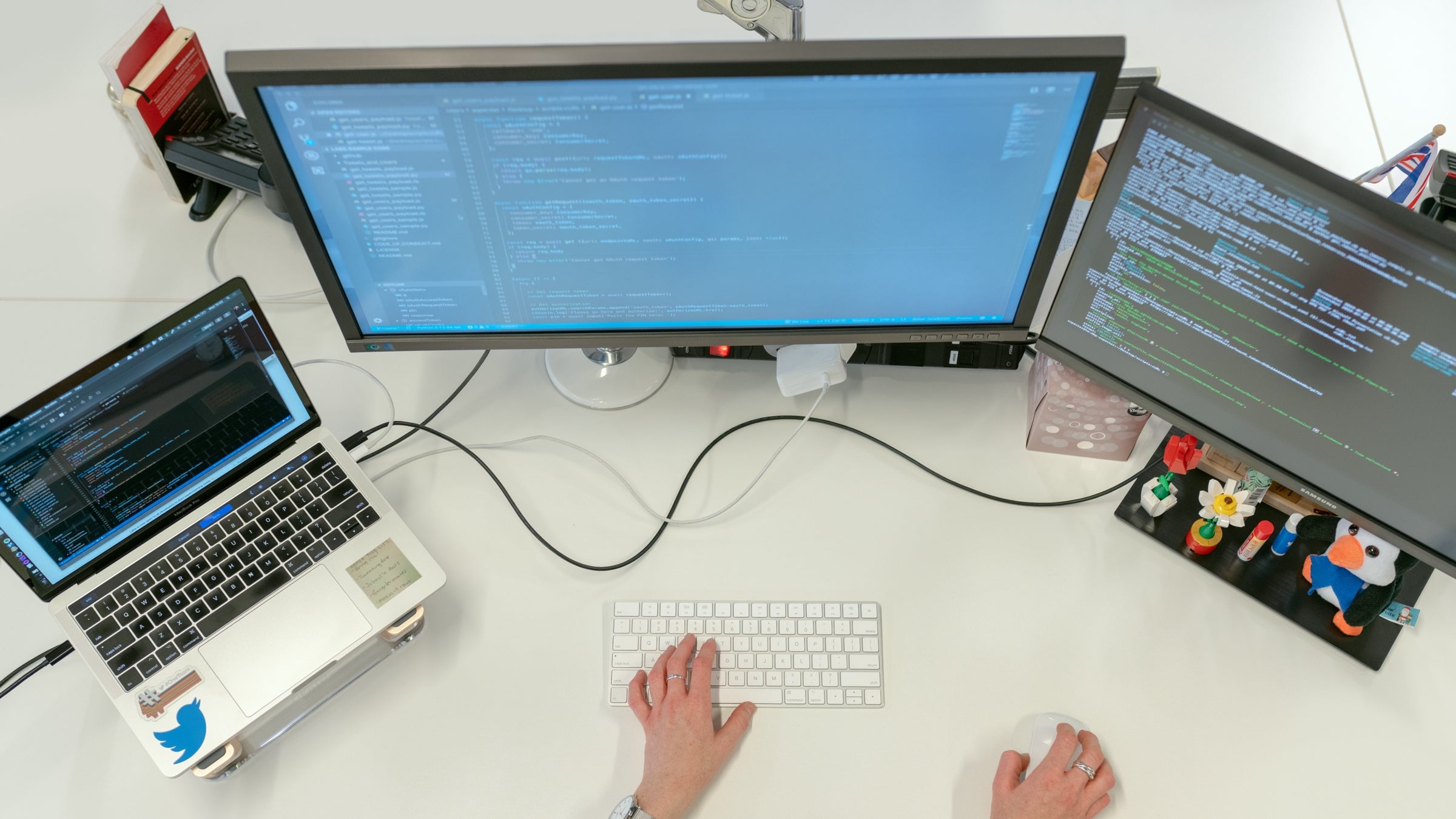Why Choosing the Right Software Development Partner Can Transform Your Project
Dedicated Developers vs. In-House Teams: Which Is Right for You?
The decision between making use of specialized designers and maintaining an in-house group is a substantial one that can influence the trajectory of your jobs and overall organization method. Devoted developers provide a degree of flexibility and specialized competence that can be beneficial for specific, short-term initiatives. On the other hand, internal groups add to a natural firm society and a nuanced understanding of long-lasting objectives. By taking a look at crucial factors such as budget, task scope, and wanted control, you can better figure out which technique aligns with your business requirements. Nonetheless, the effects of this choice extend past instant end results-- consider the wider impact on your business landscape.
Understanding Committed Developers
The growing need for specialized abilities in the technology market has actually brought about the introduction of devoted designers as a practical service for numerous organizations. These specialists are normally gotten on a job basis, allowing firms to leverage certain experience without the lasting commitment related to permanent hires. Dedicated developers are typically ingrained within a client's team, supplying adaptability and scalability to satisfy job needs.
This model allows organizations to access a global talent swimming pool, which is especially useful in a swiftly evolving technical landscape. Dedicated developers can be sourced from different geographical places, ensuring that companies can find the right ability at affordable prices. They often bring a riches of experience and expertise, having actually serviced diverse tasks across various markets.
Additionally, specialized programmers can focus specifically on the tasks at hand, boosting efficiency and efficiency. They are furnished to incorporate effortlessly into existing operations, working together very closely with in-house groups to accomplish job goals. This method not just minimizes the worry of recruitment and training however likewise allows organizations to continue to be active, adjusting rapidly to changing market demands and technical improvements.
Advantages of In-House Teams

Additionally, in-house groups often tend to have a much deeper understanding of the business's mission, values, and goals. This positioning can enhance employee engagement and inspiration, as employee feel a lot more connected to their job and the company's success. Furthermore, having a devoted in-house team permits for better positioning of purposes and methods, as these members are regularly focused on the firm's concerns.
In-house groups additionally promote quicker decision-making processes, as they can react extra swiftly to changes and obstacles. The well-known partnerships and familiarity with company protocols enable structured process and decreased miscommunication. Inevitably, the combination of a cohesive culture, alignment with business objectives, and efficient interaction makes in-house teams an important property for lots of organizations, especially those aiming to grow lasting growth and innovation.
Price Factors To Consider
When examining price considerations, both devoted designers and in-house teams present distinct financial implications for companies. Engaging specialized designers generally entails a pay-per-project or per hour rate version, which can be economical for companies with changing task demands. This technique enables for flexibility in scaling resources up or down, making sure that business only pay for the services they need.
In comparison, internal groups entail dealt with prices, consisting of salaries, advantages, and overhead expenditures such as workplace and tools. While this design offers higher control and instant schedule of resources, it may lead to higher long-lasting expenses, particularly if the work does not validate a full-time team.
Additionally, companies ought to think about the surprise prices related to employment and training of internal staff members, which can further stress spending plans. In many cases, this hyperlink the moment and resources spent on managing an in-house group can interfere with the company's core business objectives.

Task Administration and Flexibility
Job management and versatility are critical variables that affect the selection in between specialized programmers and internal groups. Committed teams usually have actually established procedures for handling jobs properly, leveraging details methodologies like Agile or Scrum, which help with iterative progression and adaptability.

Ultimately, the option between devoted programmers and in-house teams pivots on the preferred degree of adaptability and the particular job monitoring demands. Firms have to evaluate their functional dynamics, task complexity, and source accessibility to identify which alternative lines up ideal with their critical objectives.
Making the Right Selection
Selecting the right advancement method-- in-house groups or specialized programmers-- needs a careful assessment of numerous factors that align with a business's calculated objectives. Alternatively, in-house teams can supply far better continuity and integration with existing personnel.
Next, review your spending plan. Committed programmers usually offer an economical option for temporary tasks, while in-house teams might incur higher long-lasting expenditures due to wages, advantages, and expenses expenses. Evaluate the level of control and collaboration wanted; internal teams typically foster stronger communication and placement with business society.
Furthermore, consider the time frame. If immediate outcomes are required, devoted programmers can be onboarded swiftly, whereas constructing an internal team takes some time for employment and training. Consider the long-term vision of your company. If constant advancement is essential, investing in an in-house team might produce much better returns in time. Inevitably, the choice pivots on a complete evaluation of these aspects, making sure alignment with your firm's operational demands and overall goals.
Final Thought
Finally, the decision in between devoted designers and internal groups rests on job requirements and organizational goals. Devoted developers give versatility and customized expertise, making them appropriate for temporary efforts. On the other hand, internal teams grow a cohesive society and sparkle visual web design much deeper placement with long-term objectives. Cautious assessment of budget restrictions, job timelines, and desired control degrees is important for identifying one of the most ideal strategy, making certain alignment with tactical top priorities and functional performance.
The decision between using specialized designers and preserving an internal team is a substantial one that can impact the trajectory of your tasks and total company strategy.Job monitoring and flexibility are important variables that affect the option in between specialized developers and internal groups. hire dedicated developers.In contrast, in-house teams may excel in maintaining a regular project management framework due to their knowledge with the organization's society and long-term objectives. Devoted programmers typically present a cost-effective remedy for short-term tasks, while in-house groups may incur higher long-term expenses due to incomes, benefits, and expenses here are the findings prices.In verdict, the decision in between internal groups and devoted programmers pivots on task needs and organizational goals